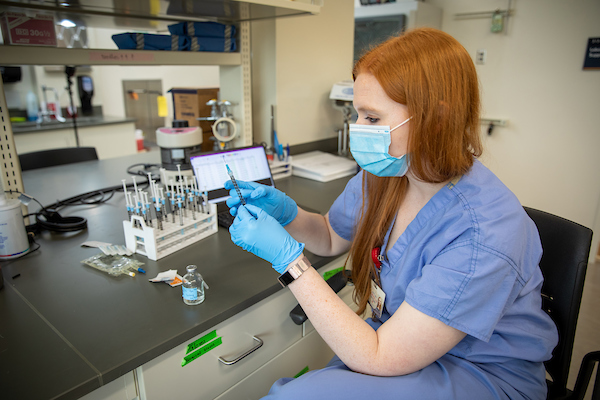- SOM
- Departments and Offices
- SOM Administrative Offices
- SOM Student Affairs
- Career Advising
Career Advising
- School of Medicine Administrative Offices Home
-
SOM Admissions
- SOM Admissions Home
- Student Testimonials
- Contact SOM Admissions
- Academic Counseling
- Admissions Criteria
- Admission Programs
- Applicant Evaluation and Decisions
- Application Timeline and Deadlines
- Accepted Applicants
- Nondiscrimination and Equal Opportunity Notice
- SOM Financial Aid
- Outreach Programs
- Technical Standards for the Degree of Doctor of Medicine
- Transfer and Visiting Students
- Faculty Affairs
- SOM Student Affairs
-
Office of Medical Education
- Office of Medical Education Home
- Contacts
- Curriculum
-
Faculty Development
- Faculty Development Home
- Professional Development Series
-
Course Director's Guide
- Home
- Table of Contents
- School of Medicine—Who We Are
- Educational Program Objectives (EPOS)
- Departmental Responsibilities
- Course Director Roles and Responsibilities
- Course Establishment
- Course Management
- SOM Policies
- Student Support
- School of Medicine Room Reservations
- Resources and Contacts
- Examination Question Validation Algorithm - PDF (external link)
- Required Tasks for the Academic Year
- Clinical Clerkship and Elective Evaluation Process
- Useful Links
- Medical Student Success Network
- SOM Accreditation
- Student Resources
- Teaching Awards
- Assessment of Courses, Course Leaders and Students
- IMPACT the RACE
- The Journey Newsletter
- Graduate Medical Education
M1 Year

The first year of medical school is denoted as arguably the most difficult year, as most of the challenge comes with adjusting to an unfamiliar and rigorous curriculum. As the year progresses and the need for help arises, students are encouraged to reach out to the SOM administration, Student Counseling Services, Academic Counseling/Tutoring, and their peers. Every medical student has experienced the hardships of the first year; there is no shame in seeking others for help!
Preclinical Advising
Each M1 is assigned a preclinical advisor to meet with and discuss progress, goals, and any concerns the student has. This is a great way to receive advice from physicians and get connected to the faculty at UMMC!
Career Development Series
During each academic year, the School of Medicine coordinates a weekly Career Development Series during the lunch hour. Clinical, academic, and research opportunities are presented during these sessions. Topics include wellness, academic support, and specialty-specific presentations delivered by faculty and residents.
Shadowing
Shadowing in medical school is an excellent way to gauge a student's interest in different specialties while applying some of the knowledge they have learned in the classroom. One of the best ways to get connected to physicians who allow shadowing is by being involved with student specialty interest groups.
Primary Care Day
Hosted by the M2 Evers' Society, this event highlights career opportunities in primary care and gives students exposure to the specialties of emergency medicine, family medicine, internal medicine, med/peds, obstetrics/gynecology, and pediatrics. It also gives students the opportunity to practice simulated medical procedures and interact with doctors who will play an integral role in their medical education during the third and fourth years.
Summer Opportunities
Halfway through the first year, the Student Affairs administration hosts an M1 class meeting to discuss the available opportunities during the summer between M1 and M2 year. Ranging from the Medical Student Research Program (MSRP) to student worker positions in the Student Affairs and Medical Education Offices, our campus offers a wide variety of ways to get involved over the summer. And of course, this is the students' last free summer; there's nothing wrong with just taking it easy!


